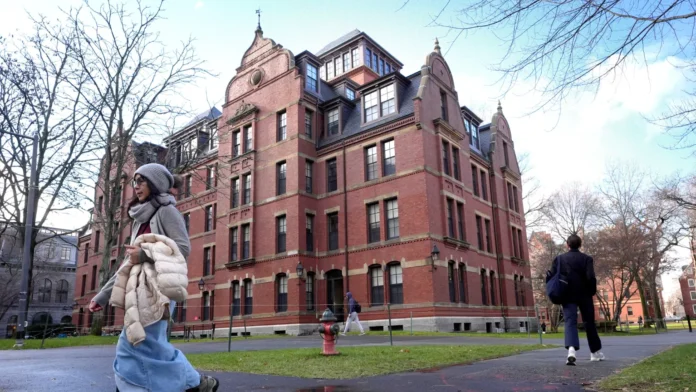A federal judge has extended a temporary order blocking the Trump administration’s attempt to bar international students from studying at Harvard. The ruling marks a critical victory in an escalating legal battle over immigration and academic freedom.
On Monday, U.S. District Judge Allison Burroughs extended a restraining order against two key Trump administration policies. The first targets Harvard’s participation in the Student and Exchange Visitor Program (SEVP), while the second blocks a presidential proclamation barring foreign students from entering the U.S. to study at the university.
“The proclamation violates the First Amendment,” argued Harvard’s lawyer, Ian Gershengorn, in court. Judge Burroughs delayed her final decision but extended the restraining order until June 23, stating she needed more time to review the case.
The Department of Homeland Security (DHS), led by Secretary Kristi Noem, moved in May to revoke Harvard’s SEVP certification. Days later, President Trump signed an executive order specifically banning foreign students from attending the university.
Harvard swiftly challenged both actions, calling them arbitrary and unlawful. The school warned that losing SEVP status would disrupt the lives of 7,000 international students—27% of its student body forcing them to transfer or leave the U.S. within months.
The policy has already caused confusion at U.S. borders. Several Harvard-bound students were denied visas, while at least four were detained at Boston’s Logan Airport. University officials argue the administration’s actions create “unnecessary uncertainty” and violate constitutional rights.
Legal experts say the case enters uncharted territory. “No president has tried this before,” said Josh Blackman, a law professor. The lack of precedent leaves the outcome uncertain as Harvard fights to protect its international scholars.
This legal clash is just one front in a wider conflict. Since Trump’s return to office, his administration has frozen billions in Harvard funding, threatened its tax-exempt status, and launched multiple federal investigations.
The White House accuses Harvard of fostering antisemitism, violence, and ties to China. Harvard denies these claims, calling the administration’s actions politically motivated.
With the restraining order extended, Harvard gains temporary relief. However, a final ruling could set a major precedent for presidential power over education and immigration. For now, international students can breathe easier but the legal battle is far from over.
For more political updates, visit DC Brief.


